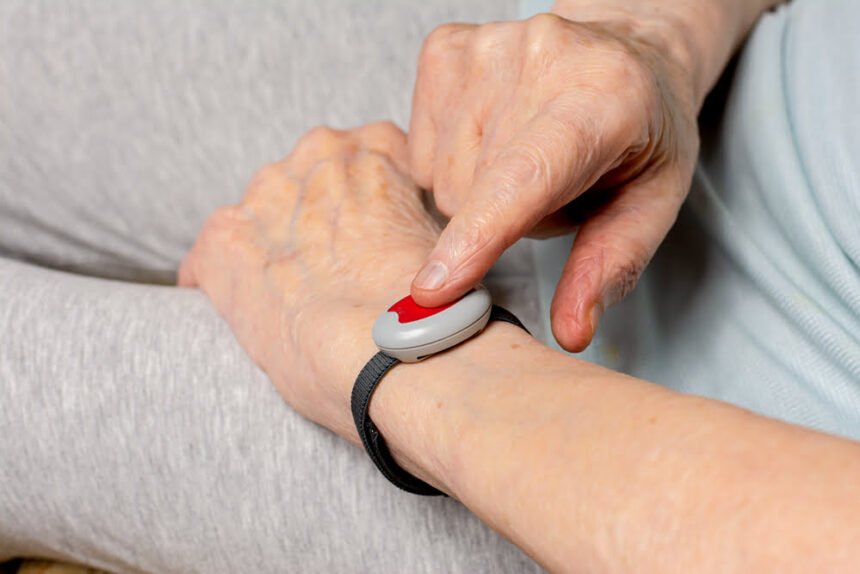Did you know that Americans make nearly 130 million emergency room visits each year? That is a terrifying statistic. It is even more concerning for older Americans, since they are most prone to having emergencies.
Medical emergencies can happen to any of us at any time, yet when they happen to our elderly or sick friends and family, they become of major concern. Do you have an elderly relative who lives on their own? Or perhaps someone who suffers from a condition that could be dangerous, yet does not need 24-hour care? Many of us do, and it can be worrying knowing that they are on their own and vulnerable.
What if your elderly and frail relative suffers a fall and cannot get up? Or perhaps someone in your family has an illness that leaves them needing a wheelchair, or even bedridden for some time? What can they do if they need to contact the emergency services yet cannot reach a telephone? This is where Medical Alert Systems come into the picture, and we are not exaggerating when we call these systems lifesavers. In addition to offering peace of mind, medical alert systems also help seniors have more independence. Let’s have a look at a typical Medical Alert System and what it does.
What is a Medical Alert System?
We have chosen the range of Life Assure’s Medical alert products as your first port of call as this should give you a good idea of what a typical Medical Alert System is all about. They come as a two-part device. One is a base system or receiver, and the other pendant or transmitter that the user wears on a lanyard.
However, there is another element to the Medical Alert System – a team of professionals operating from Life Assure’s call center. Here’s how it works: your elderly relative realizes their condition is getting worse but cannot reach a telephone. They press the button on the pendant and this signals by wireless RF technology that the person is in trouble. The base unit is connected to the phone line – or sometimes a broadband connection – and calls the Life Assure center.
One of the handlers will answer the call and can hold a conversation with the wearer. If they cannot talk, the handler will automatically instruct the emergency services to attend the address. With some systems, the pendant is able to determine when the patient has endured a fall and will automatically alert the call center. It’s a clever and very useful system, and one that provides both the user and those who care for them with added peace of mind.
Who Needs a Medical Alert System?
It is not only elderly relatives who can make use of a Medical Alert System. For example, someone who has recently undergone surgery and perhaps is limited in mobility for a while – or indeed bedridden until recovered – may make use of such an emergency system. There are also mobile examples designed for use when out and about, perhaps for wheelchair users who may get in trouble.
Other potential users include persons with chronic ailments that may worsen who live alone – or perhaps in a care home – plus those who are simply living on their own but want the assurance they can get in touch with medical help should the need arise. A Medical Alert System is something you may wish to consider for your loved ones who live alone, for your own assurance as much as theirs.
Getting Started with a Medical Alert System
There are many signs that elderly parents or other people in our lives need care. You have to be mindful of this and know how to help them.
We are all living longer lives which means more time to age and more potential problems, and if you know someone old, infirm, or ill who lives alone, we recommend you start by checking out the range of products provided by Life Assure. The fees they charge are surprisingly affordable and you will be impressed by the level of service they provide.

